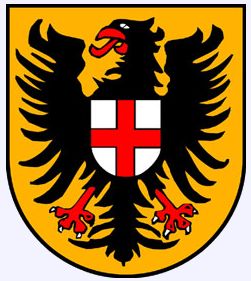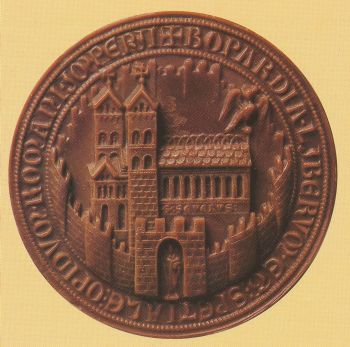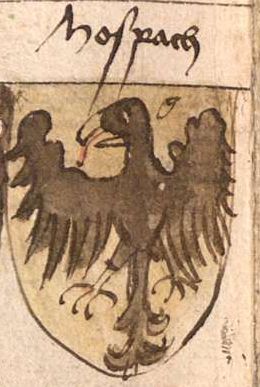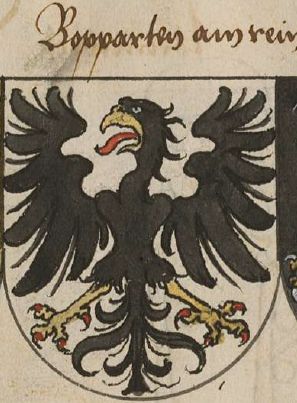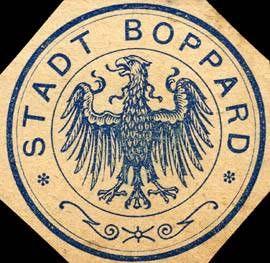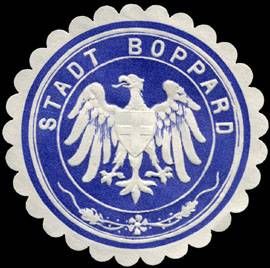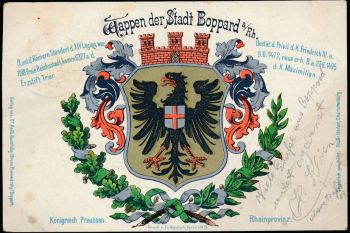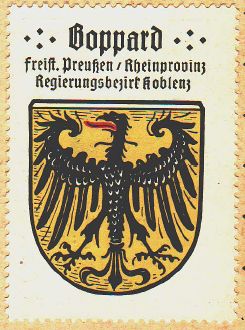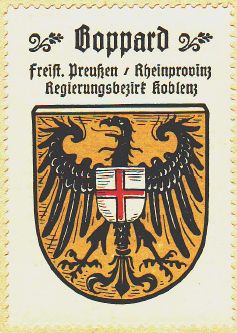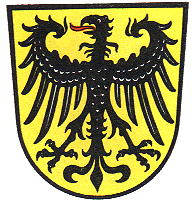Boppard: Difference between revisions
Knorrepoes (talk | contribs) m (Text replacement - "{{media}}" to " {{de1}} {{media1}}") |
Knorrepoes (talk | contribs) m (Text replacement - "{{de}}" to "") |
||
| Line 1: | Line 1: | ||
'''BOPPARD''' | '''BOPPARD''' | ||
Revision as of 14:58, 26 December 2022
BOPPARD
State : Rheinland-Pfalz
District (Kreis) : Rhein-Hunsrück Kreis (until 1969 Sankt Goar)
Additions : 1975 Bad Salzig, Buchholz, Herschwiesen, Hirzenach, Holzfeld, Oppenhausen, Rheinbay, Udenhausen, Weiler
| German |
In Gold ein rot bezungter und rot bewehrter schwarzer Adler mit silbernen Krallen, belegt mit einem Herzschild, darin in Silber ein rotes Balkenkreuz. |
| English | No blazon/translation known. Please click here to send your (heraldic !) blazon or translation |
Origin/meaning
Boppard was already in the early 13th century a free Imperial City and thus used the Imperial Eagle on its seals, the oldest known since 1216. The seal shows the eagle on a city wall. A second 13th century seal also shows the eagle on a shield besides the local church and patron saint, St. Severus. In the 14th century the eagle appears alone, in the 15th century with an escutcheon with the cross of Trier. Boppard was sold to Trier in 1312.
| The great seal of Boppard (source : Diederich, 1984) |
In 1817 the arms were granted for the first time, in 1911 the arms were replaced by the eagle and the cross of Trier as an escutcheon. In 1962 the arms were granted without the escutcheon, but after the mergers in 1975 the escutcheon was restored again, but only in 1985.
| The arms in the late 15th century |
The arms in a manuscript +/- 1530 |
| Seal from around 1900 |
Seal from around 1900 |
| The arms on a postcard, 1900-1905 |
The pre 1911 arms in the Kaffee Hag albums +/- 1925 |
| The arms of 1911 in the Kaffee Hag albums +/- 1925 |
The arms from 1962 until 1975. |
Literature: Stadler, 1964-1971, 8 volumes; Hupp, O: 1920s
